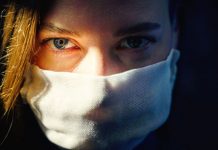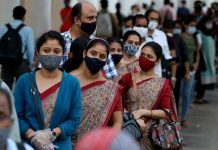We have all been advised to wear face masks to help prevent the spread of coronavirus. However, a few people say that wearing face masks for a long time is reducing their oxygen intake and forcing them to breathe their own carbon dioxide. Many people are concerned about the dangers of wearing face masks. Will it lead to less oxygen and more carbon dioxide? Here are some myths and truths.
Myth #1 You Don’t Need a Mask While You Are Out Because Solar Radiation Kills the Virus
Studies estimate that COVID-19 will be inactive after it is exposed to sunlight for around 34 minutes. However, the study is applicable only to certain surfaces. Sunlight will not stop someone from spreading the virus if they cough or sneeze while you’re outside. Data proves that plenty of people get infected when they out without a mask.
Myth #2 Wear a Mask Only If You’re Infected/Experience Severe Symptoms
More than half of coronavirus cases are asymptomatic and pre-symptomatic. In the absence of the common symptoms, a person will not know if they are infected. So, they don’t self-isolate. Wearing masks can prevent disease.
Myth #3 Wearing Masks Do Not Protect the One Who’s Wearing Them
Wearing masks acts as a barrier to prevent the spread of droplets from an infected person. Does it protect the person who is wearing it? There is no 100% proof that mask-wearer gets protection but it will give some amount of protection by blocking droplets from reaching you.
Myth #4 Wearing Masks Will Reduce Oxygen Levels
No! Even before the outbreak of Covid-19, face masks were given to patients with lung diseases to protect them from others. Wearing a face mask won’t lower their oxygen levels.
On April 23, a driver crashed his SUV in New Jersey and blamed his collision on his mask. The driver told the police that he passed out because he was wearing an N95 mask for too long. The police believed him then and also posted on FB to warn other people. The post also became viral and later the police department cleared that they didn’t know with 100% certainty. They also mentioned that other medical reasons could have possibly contributed to the driver passing out.
What Experts Say about Oxygen Levels When Wearing Masks?
Dr. Jennifer Kwan, a family physician in Burlington says, “Oxygen and carbon dioxide still get through your mask, but it catches the droplets that contain the virus, which is what helps reduce transmission. As medical professionals, we wear masks in our day-to-day practice and it has not caused doctors or nurses or surgeons any harm.”
Myth #5 Only N-95 Masks Are Useful and the Other Face Coverings Do Not Prevent the Transmission of the Virus
N-95 face masks are reserved for frontline healthcare workers. A cloth mask, face covering, scarf, the bandana is better than wearing nothing. Other masks work as a barrier to the respiratory droplets that come in contact with the wearer.
There is no evidence that wearing masks weaken the immunity system. Healthcare providers wear masks all day long in the hospital. They are designed to be breathed through and there is no evidence of low oxygen levels. However, if the patient has a preexisting lung disease, prolonged usage of N-95 masks may cause a build-up of carbon dioxide levels in the body. So, people with preexisting lung diseases should discuss their concerns with healthcare providers.
It is safe to wear a mask and it doesn’t have a huge impact on the oxygen levels. Wearing masks and social distancing are the keys to control the spread of the virus. Wear a mask and help the economy to get back to normal faster.






























